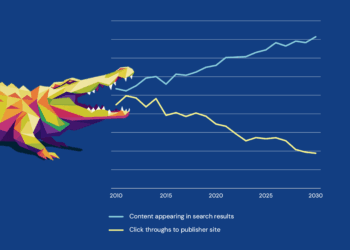The American Chemical Society appears to be in a rather unusual position among scholarly and professional societies in the United States.
On the one hand, it is a well-respected publisher of high-quality chemistry journals and of Chemical Abstracts, which is generally recognized as the core research database in the field.
On the other hand, ACS also provides a formal approval program for undergraduate academic chemistry departments. Programs that adhere satisfactorily to the Guidelines for Undergraduate Professional Education in Chemistry are “ACS-approved,” and ACS will supply department chairs with “free certificates for graduating chemistry majors” to certify that those students are the products of ACS-approved programs. ACS approval is not technically the same thing as accreditation; however, it seems pretty clearly to function very much like accreditation does, and chemistry programs and their students obviously place a very high premium on ACS approval. A Google search on the phrase “ACS-approved” brings up thousands of results for academic department pages and personal resumes on which that phrase features prominently. ACS itself promotes approval as a tool for “attract(ing) top high school talent” and for “leverag(ing) support from . . . institutions and external agencies.” (I contacted several chemistry department chairs, asking if they would comment on the importance of ACS approval in terms of faculty and student recruitment. None responded.)
There are other societies that perform a similar function: the American Psychological Association is the accrediting body for doctoral, postdoctoral, and internship program in psychology; ABET (formerly known as the Accreditation Board for Engineering and Technology) is “the recognized U.S. accreditor of college and university programs in applied science, computing, engineering, and technology,” and accredits roughly “3,100 programs . . . distributed over more than 600 universities and colleges in 21 countries.”
An important difference between these and ACS, apart from the difference that separates “approval” from formal accreditation, is that ACS provides its approval candidates with a list of journals, at least 14 of which must be available to students in the program. The list consists of 98 titles, divided into three sections: General Content (10 titles, three of which are ACS publications); Topical—Highly Recommended (24 titles, 15 of which are ACS publications), and Topical—Also Recommended (54 titles, six of which are ACS publications).
The requirements in relation to these products are set by the ACS Committee on Professional Training, and are as follows (my comments in square brackets):
An approved program must provide access to no fewer than 14 current journals chosen from the CPT recommended journal list . . . in either print or electronic form. At least three must come from the general content list [three of them are ACS titles], and at least one must come from each area of analytical chemistry [Analytical Chemistry is an ACS title], biochemistry [Biochemistry is an ACS title], inorganic chemistry [Inorganic Chemistry is an ACS title], organic chemistry, physical chemistry [the three Journals of Physical Chemistry are all ACS titles], and chemistry education [Journal of Chemical Education is the only title in this category, and is an ACS publication].
In addition, “students must have print or electronic access to Chemical Abstracts, including the ability to search and access full abstracts [Chemical Abstracts is an ACS publication].”
What this means is that no undergraduate chemistry program can gain ACS approval unless its students have access, at a bare minimum, to the ACS publications Chemical Abstracts and Journal of Chemical Education. And while it would be theoretically possible to gain ACS approval without subscribing to any other ACS journals, it would require concerted effort, since a majority of the titles on the “Highly Recommended” list are ACS publications.
Does this arrangement constitute a conflict of interest? Quite clearly it does. ACS is simultaneously in the position of defining the conditions of approval and of realizing direct financial benefit from the specifics of those conditions. To be clear, the question is not whether any chemistry department worth its salt could fail to offer access to, for example, Chemical Abstracts. The question is whether the publisher of Chemical Abstracts should act simultaneously as an “approver” of chemistry programs, where approval is predicated on access to Chemical Abstracts.
What if another publisher were to develop a product that competes directly with Chemical Abstracts? What if the quality and performance of Chemical Abstracts were to drop?
As things stand, ACS seems to be acting simultaneously as player and referee.
ACS characterizes its Committee on Professional Training as “independent,” and it is true that the committee’s members are unpaid by ACS; however, that committee is not an independent body. It is an ACS body.
How big a deal is this? The conflict of interest is blatant in the case of Chemical Abstracts and Journal of Chemical Education, and it is somewhat subtler in regard to the “Highly Recommended” journal list, 63% of which is comprised of ACS titles. But in both cases the conflict is real, and seems to have gone largely (though not entirely) without public comment up until now.
It may be that ACS is handling these conflicts honorably, but how can we know for certain?
At the very least, this issue seems to bear more and wider discussion.
Discussion
15 Thoughts on "Who Will Referee the Referee? — The ACS As Publisher and "Approver""
This same issue (in less depth) was brought up by Mark Ferguson at College of Saint Elizabeth on the SERIALST listserv in January. It’s particularly troubling as ACS has been so aggressive with their pricing recently.
And here’s the link to that SERIALST post: http://list.uvm.edu/cgi-bin/wa?A2=ind1101&L=serialst&T=0&F=&S=&P=44056
This is truly amazing, and the link posted above by Chris Bulock is simply shocking. As a biochemist, I regularly get mailings from the ACS inviting me to become a member, so now I know what to answer next time I get one of their invitations.
The only way to deal with such a blatant conflict of interest is to expose it as widely as possible. Name them and shame them throughout the academic community. If the chemists are held hostage by this ugly situation, their colleagues in other departments are not, and pressure can be applied from other directions.
The journals and Chemical Abstracts are very wonderful tools for chemists. The cost per use of the top ACS journals at our organization is very low.
The question of quality and value-for-dollar is a good one, but it doesn’t address the issue of conflict of interest. In other words, the question isn’t whether ACS provides good products at a good price (although ACS has made the pricing issue much more urgent recently by jacking up its prices to libraries in a dramatic fashion). The question is whether it’s appropriate for ACS to act simultaneously as the arbiter of a chemistry program’s “approval” and as the publisher of products that are required for approval.
The American Chemical Society is a very large organization. While I can’t speak for them, it should be possible to separate the functions of their publication and accreditation divisions such that there is minimal conflicts of interest.
Many medical publishers physically separate their business offices from their editorial offices for similar reasons.
That’s exactly ACS’s stance — they hold that the CPT is somehow “independent.” But that seems ridiculous to me. The CPT is a committee of ACS. The only way for it to be independent would be for it to be unaffiliated with ACS. The problem here is that ACS publishes the same products that it requires for “approval.” As long as ACS itself (however organized) is doing both the approving and the publishing, the conflict is real.
Are there medical organizations that simultaneously act as commercial publishers and as accreditors of programs (or the functional equivalent)? (I’m asking sincerely; I don’t know.)
There have been lots of comments on this over the decades from librarians. Many are not appropriate for family-oriented blogs.
Check out the public 990 tax returns for ACS. In 2009 (most recent available) the head of Chem Abs made over a million a year, head of publications over a half million. I’m sure they deserve it; it’s a big business after all. Oh, wait, it’s a non-profit…
Our subscription rate for their journals (an offer we literally can’t refuse) went up 15% this year, double the overall journal increase rate for 2011. With two other colleges we pay over 30K for access to their database – but only two people from all three institutions can search it at the same time. It’s a fine database, and I’m sure it costs a lot to create but that’s way more than anything else we pay for any discipline.
No wonder that in 2009 their assets were over a billion. Oh, and they spend a lot on lobbying – and it’s no wonder some of that is against open access mandates.
We aren’t creating new products, we aren’t taking out patents. We’re an undergraduate institution training future chemists. Give us a break.
In (mild) defence of the ACS: Chem Abs/SciFinder is a superb database that didn’t really have serious rivals until about 10 years ago. But it is ferociously expensive.
Plus you could get just about manage without any ACS journals and get approval – but I bet your faculty members would prefer to get at least some.
Finally, I know the link says there are other chemical education journals that J Chem Ed – but doesn’t name them. I haven’t heard of any myself.
In (mild) attack of the ACS (and without wishing to get sued): they’ve also had some…interesting opinions on open access and competitors to Chem Abs/Scifinder. For example:
ACS vs Open Access http://www.sourcewatch.org/index.php?title=American_Chemical_Society#ACS_activities_against_open_access
And “ACS Takes Legal Action Against Google” http://pubs.acs.org/cen/news/8250/8250acs.html
ACS opposition to Pub Chem: http://www.sciencemag.org/cgi/content/summary/308/5723/774a
ACS vs Leadscope (competitor to Chem Abs, set up by former employees. ACS lost + had to pay $19 million) http://pubs.acs.org/cen/news/86/i13/8613news8.html
Or you could just read this news feature in Nature: http://www.nature.com/nature/journal/v437/n7060/full/437807a.html ‘The friction that arises when a scientific society aims both to serve its members and stay commercially competitive is generating heat within the American Chemical Society’
Just out of curiosity, I wanted to know, how many chemists are in ACS? From their website there are more than 163,000.
Next question, was how many chemists are there in the United States?
From the 2008-18 National Employment Matrix, Bureau of Labor Statistics
ftp://ftp.bls.gov/pub/special.requests/ep/ind-occ.matrix/occ_pdf/occ_19-2031.pdf At that time there were 84,300 chemists in the US, 4000 in the education sector. As we know the market isn’t growing very quickly. The third question that I can’t answer is how difficult would it be to find chemists that aren’t in the ACS that could accredit schools? Final question which maybe one of my colleagues could answer, how long have the CPT guidelines required/ recommended these journals and Chemical Abstracts? I’m sure it has been at least 10 years.
I think the ‘conflict of interest’ concern is a little silly. ACS publishes both the premier journals and the premier database, so what else would be a reasonable recommendation? Furthermore, the ACS CPT is a committee made up of ACS members. There are other more serious concerns about the ACS and its governance … let’s not be distracted …
There’s nothing wrong with being a basketball player, nor is there anything wrong with being a referee. But I think we’d all agree that there’s something wrong with trying to be both during the same game. That’s the situation in which ACS has placed itself: it’s both a player in the commercial marketplace of professional journals and a referee with the power to decide which journals are essential for chemistry departments. A reasonable recommendation, it seems to me, would be for ACS to pick one role or the other.
As for the other “serious concerns,” I don’t see why we have to pick only one thing to be concerned about. If there are other reasons to be concerned about ACS’s governance, then by all means let’s address those as well. Reasonably competent professional adults ought to be able to deal with more than one issue, I think.




